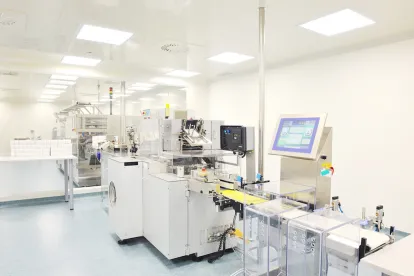Since its passage in late 2018, the Eliminating Kickbacks in Recovery Act (EKRA) (18 U.S.C. § 220) has posed interpretive challenges. Our detailed critical analysis of EKRA is available here. EKRA prohibits, among other things, the exchange of remuneration for referrals of patients or patronage to a clinical laboratory, or an individual’s use of the services of a clinical laboratory. The law, however, leaves key terms undefined, including “referral”, “patronage”, and “use of services.” This ambiguity leaves unclear exactly which forms of conduct are prohibited by EKRA. Further, EKRA contains exceptions that overlap imperfectly with safe harbors under the Anti-Kickback Statute (AKS) and states, confusingly, that EKRA “shall not apply to conduct that is prohibited” by the AKS. The latter provision imperils the status of conduct that is within an AKS safe harbor, but which does not meet the requirements of an EKRA exception. No implementing regulations have been published to alleviate any of these ambiguities.
These interpretive challenges have posed obstacles for clinical laboratories, including those seeking to formulate fair, effective, and compliant compensation methodologies for their employed sales staff. Historically, many clinical laboratories have paid employed sales staff based on a formula that takes into account the volume or value of test orders from the physician accounts handled by each staff member, relying firmly on the broad safe harbor under the AKS for remuneration paid to bona fide employees. EKRA, however, does not provide a similarly broad exception for employee compensation, instead excepting only those payments that do not vary based on “the number of individuals referred to a particular…laboratory;…the number of tests or procedures performed; or…the amount billed to or received from…the health care benefit program from the individuals referred to a particular…laboratory.” 18 U.S.C. § 220(b)(2). Thus, clinical laboratories seeking to comply with both the AKS and EKRA have been forced to grapple with whether the latter applies at all to payments to employed sales staff working with physician customers (as opposed to patient customers directly) and, if so, whether the laboratories are required to (and how they can meet) the requirements of the EKRA exception for payments to employees.
A 2021 decision from one district court addressed the first of these questions, finding that EKRA does not apply to payments to employed sales staff for soliciting physician orders. In particular, the court found that a sales employee that serviced physician accounts “was not working with individuals [whose samples were tested at the lab]” and therefore the employee’s compensation “was not paid to induce him to refer individuals to [the laboratory].” S&G Labs Haw., LLC v. Graves, 2021 WL 4847430 (D. Haw. Oct. 18, 2021) (S&G Labs).
Recently, however, a different district court took the opposite view. U.S. v. Schena, 5:20-cr-00425-EJD-1, 2022 WL 1720083 (N.D. Cal. May. 28, 2022). In Schena, the court addressed a motion by Mark Schena, the President of Arrayit Corporation, a publicly traded medical technology company in California, to dismiss criminal charges filed against him for violating EKRA (among other charges). The government alleged that Schena had, in violation of EKRA, conspired to pay, and paid, illegal kickbacks to physicians and marketers to induce the direction of blood samples to the Arrayit Corporation for COVID-19 testing and allergy testing. The government also alleged that many of these tests were not medically necessary, not eligible for reimbursement, or not provided at all. Id. at 2; Superseding Indictment ¶ 31(f). The government also alleged that Arrayit Corporation submitted $69 million in claims to governmental and commercial insurers for such tests. See id. at 2. Relying on S&G Labs, Schena argued that EKRA could only apply in circumstances in which a marketer directly works with patients. The California District Court disagreed and denied Schena’s motion.
According to the Schena court, EKRA “applies to situations where someone ‘pays or offers any remuneration,’ to ‘induce’ an individual into using laboratory or clinical services. 18 U.S.C. § 220(a)” and does not codify a requirement of a direct relationship between the marketer and the individual user. Id. at 4. Therefore, “the plain meaning of ‘to induce a referral of an individual’…includes situations where a marketer causes an individual to obtain a referral from a physician.” Id. Therefore, the Schena court found that (i) EKRA extends to situations in which marketers are paid for indirectly causing patient referrals, e.g., through efforts to market a laboratory’s services to physicians, and (ii) the fact that patients are not directly referred by the marketers is not sufficient to avoid implicating EKRA. Id. at 5.
These conflicting decisions exacerbate the challenge of pragmatically complying with, let alone resolving, the ambiguities in EKRA’s language. We will continue to track the evolving interpretations of EKRA, and are available to assist clinical laboratories navigate their employee compensation plans to a position of compliance with EKRA’s requirements.
*Lotan Helfman is a law clerk in the firm’s Washington, D.C. office.



 />i
/>i

